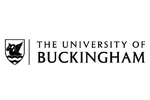

the United Kingdom
University of Buckingham| The award | How you will study | Study duration | Course start | Domestic course fees | International course fees |
|---|---|---|---|---|---|
| MSc | Full-time, Part-time | 1 - 2 year | September, January | find out | find out |
The MSc programme in Money, Banking and Central Banking focuses on the changes in the banking and financial markets during and since the Global Financial Crisis, as well as the changes made by major central banks in the running of their monetary policies since then. The programme will pay particular attention to the assessment of the policy responses given by world leading central banks to the Covid-19 crisis and their effects on prices and output over the medium and long term.
Banks and central banks play a pivotal role in the sound functioning of modern monetary economies. The 2008-09 Global Financial Crisis was a powerful reminder of how important it is to understand their functioning and operations, and the relationship between the quantity of money and the overall economy.
Unlike any other programme in the UK, ours emphasises the importance of high quality monetary and banking analysis, allowing our students to assess which policies are compatible with stable economic growth and long term financial stability.
Our students will leave with expert knowledge of monetary economics, monetary policy, risk assessment and how financial institutions operate. They will be equipped with the specialised knowledge and skills required for a career in central banking, as well as monetary analysis suitable to pursue a career in consultancy businesses, research departments and specialised media.
We offer two entry points, one in September and one in January, as well as a part-time programme, ideal for those seeking a flexible way to further their education and careers in money and banking.
The majority of the programme consists of the following modules:
A full timetable for the course is available here
Students will have the option to study for an accreditation in financial risk management with the Professional Risk Managers' International Association (PRMIA), ideal for those interested in entering the risk management industry.
The programme covers fundamental concepts of the risk management profession and has become a well-known benchmark in this market both in the UK and in the rest of the world.
The teaching staff of our master's programme will offer extra academic support to the students who opt to take the exam. The cost of the PRM certificate course is covered, however the exam fee needs to be covered by those taking the exam.
This certificate will put students seeking a career in the financial and banking services industries at a considerable advantage.
Established in 2014, in the aftermath of the Great Financial Crisis of 2007-2009, the Institute of International Monetary Research (IIMR) is an educational charity that aims to bring to public attention the strong relationship between the quantity of money on the one hand, and inflation and the levels of national income and expenditure on the other.
The Institute is heavily involved in the teaching of the programme. It offers its facilities to students to help them engage in a professional environment where they can focus on analysis into trends in money and banking. The Institute also produces research in the form of edited volumes and research papers that will inform students about the key debates in academia and financial markets.
In addition, the Institute of International Monetary Research organises research seminars in Buckingham and an annual monetary conference in the UK. At these events, students have the opportunity to learn from top academics, regulators and practitioners of monetary economics, both from the UK and overseas.
"I joined the programme in the middle of a pandemic and to be given the freedom and support to explore contrarian theories is an experience I will always treasure.
The programme allows for a robust understanding of central banks, macroeconomics and financial analysis. Something unique to Buckingham is its small class sizes and open debates throughout the course, giving you unfettered access to highly responsive lecturers who are always happy to help you further your intellectual curiosity for any tangents of economic thought one may want to explore further.
Highlights of my studies included creating inflation forecasts, understanding how broad money aggregates can impact inflation and the regular webinars chaired by the IIMR with industry leaders and top academics.
This course is a must for students interested in pursuing future financial services and macroeconomics careers, allowing you to understand the deeper meaning behind current economic events."
Max Georgiou (2021)
"Joining the MSc in Money, Banking and Central Banking was one of the best decisions I have ever made.
Contact University of Buckingham to find course entry requirements.
Below are some suggested courses at other providers that you may also be interested in:
Bachelor of Business Administration BBA
University of Applied Sciences Europe - Amsterdam
Find out moreLeading International Vaccinology Education (LIVE) (Erasmus Mundus) Master
University of Antwerp
Find out moreIf you do not meet the entry requirements for this course then consider one of these postgraduate preparation courses from another institution:
Graduate Diploma of Engineering (Electrical Systems)
Engineering Institute of Technology
Find out moreSpecialist Community Public Health Nursing (Sexual Health Advising)
University of Cumbria
Find out moreThere are 156 other courses listed from University of Buckingham. A selection of these are displayed below:
Find out more about studying in the United Kingdom